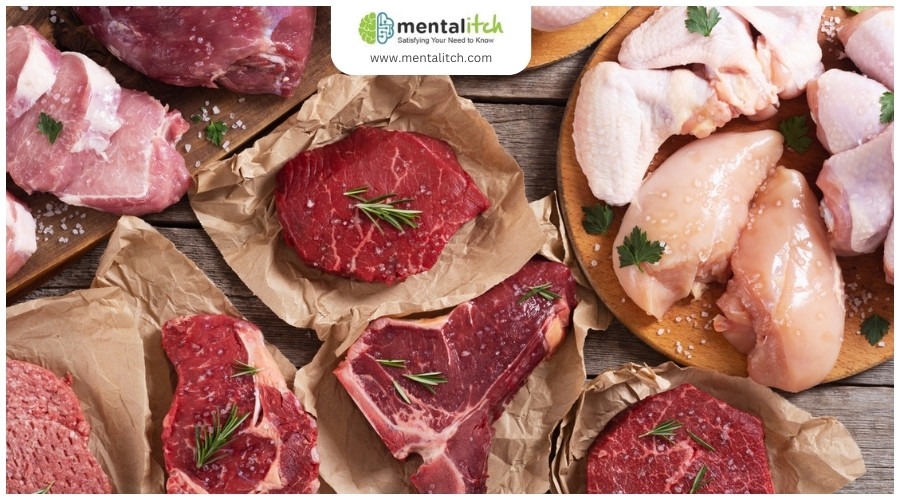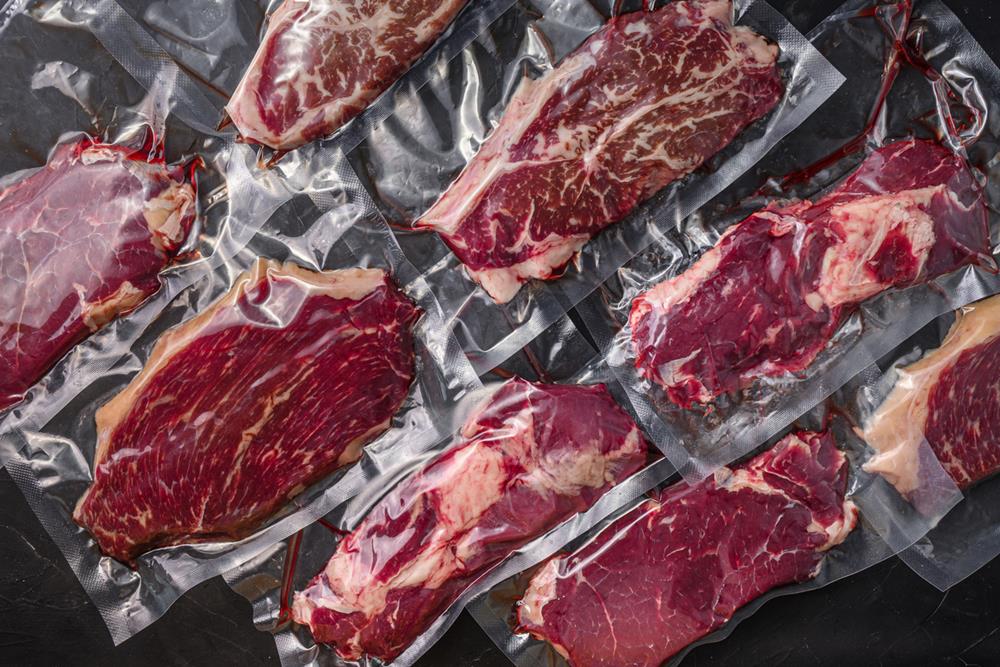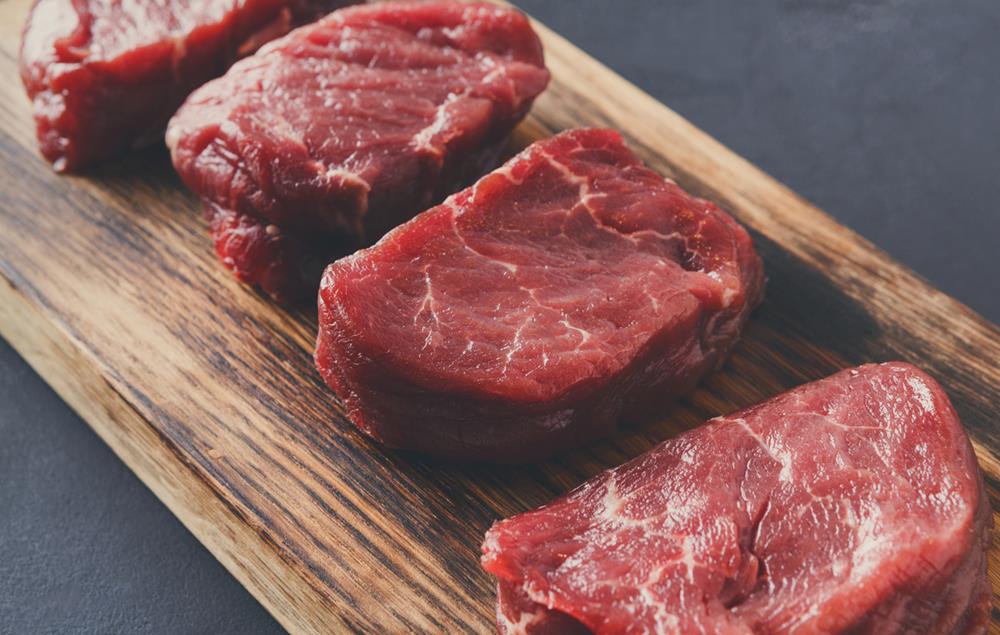Have you ever wondered what “organic meat” really means? It’s more than just a label you see at the grocery store. In this article, we’re going to discuss organic meat, exploring things you might not know about it.
Organic meat comes from animals that are raised in a certain way, aiming to be kinder to the environment, the animals themselves, and potentially even your health. We’ll look into what makes meat organic, why it matters, and some of the surprises it holds. Whether you’re already a fan or just curious, there’s a lot to learn about the choices behind the organic label.
Definition and Standards of Organic Meat
When we talk about “organic meat,” we’re referring to meat from animals raised according to specific guidelines that prioritize natural processes, animal welfare, and environmental health. But what does organic really mean, and who decides if meat is truly organic?
What Makes Meat Organic?
Organic meat comes from animals that have been fed organic feed and raised without the use of synthetic hormones or antibiotics. These animals must have access to the outdoors and be reared in a way that mimics their natural behaviors. This approach not only supports their well-being but also contributes to the production of meat that many consider to be cleaner and more sustainable.
Standards and Certifications
The standards for what qualifies as organic meat can vary from one country to another, but they generally follow these principles:
- Feed: Animals must eat organically grown feed without genetically modified organisms (GMOs) or synthetic fertilizers and pesticides.
- Healthcare: Preventive healthcare practices are encouraged, and the use of antibiotics and growth hormones is strictly prohibited.
- Living Conditions: The animals should have access to the outdoors and enough space to move freely, promoting natural behavior and health.
- Environmental Preservation: Organic farming practices are designed to reduce pollution, enhance soil health, and conserve water.
In the United States, for example, the Department of Agriculture (USDA) certifies meat as organic if it meets their strict standards. Similar bodies exist in other countries, ensuring that the organic label carries weight and meaning.
Differences in Labels
It’s also important to understand the difference between “organic,” “free-range,” and “grass-fed” labels:
- Organic: This label indicates that the meat meets the comprehensive standards for organic farming and processing.
- Free-Range: This term suggests that animals have some access to the outdoors, but the specifics can vary widely.
- Grass-Fed: This label means the animals’ primary diet was grass rather than grain. While grass-fed meat has its own benefits, it doesn’t guarantee organic standards were met in other aspects of the animal’s care and feeding.
Understanding these standards and labels can help you make more informed choices about the meat you consume. It’s about knowing where your food comes from and how it was produced, which can have significant impacts on your health, animal welfare, and the environment.
Health Benefits of Organic Meat
When it comes to eating meat, many of us are looking for the healthiest options. Organic meat is often touted as a healthier choice, but what exactly are the benefits? Here’s what you need to know about the health perks of choosing organic meat.
Nutritional Advantages
Studies have shown that organic meat can have a different nutritional profile compared to conventionally raised meat. For example:
- Higher Omega-3 Fatty Acids: Organic meats, especially from animals that are grass-fed, tend to have higher levels of omega-3 fatty acids, which are beneficial for heart health.
- Lower Fat Content: Organic meat often contains less total fat, but when it does have fat, it’s likely to have a better ratio of omega-3 to omega-6 fatty acids.
- More Antioxidants: Animals raised organically may produce meat that’s richer in certain antioxidants, including vitamin E.
Reduced Exposure to Antibiotics and Hormones
One of the most significant health benefits of choosing organic meat is the reduced exposure to antibiotics and synthetic hormones, which are commonly used in conventional meat production. Overuse of antibiotics in farm animals can contribute to the development of antibiotic-resistant bacteria, a growing public health concern. Organic standards prohibit the use of these substances, making organic meat a choice that supports antibiotic stewardship.
Lower Risk of Contamination
Organic farming practices also reduce the risk of contamination from harmful bacteria and pesticides. Since organic livestock must have access to the outdoors and are fed organic feed without synthetic pesticides, the risk of pesticide contamination in your meat is lower. Moreover, the stringent regulations on organic farming help prevent contamination from other environmental toxins.
Considerations for Human Health
Choosing organic meat is not just about the direct health benefits you might gain from consuming it. It’s also about supporting farming practices that are better for the health of the planet. Sustainable farming practices used in organic farming can lead to healthier soil and a cleaner environment, which indirectly benefits human health by creating a more sustainable food system.
While organic meat can offer several health benefits, it’s important to remember that moderation is key when consuming any type of meat. Including a variety of protein sources in your diet, such as plant-based proteins, can contribute to a well-rounded and healthy diet.
Environmental Impact
The conversation around organic meat doesn’t just stop at health benefits; it extends significantly into the realm of environmental impact. The way meat is produced can have profound effects on our planet. Here’s how organic meat production plays a role in environmental sustainability.
- Sustainable Farming Practices: Organic farming practices are designed with the environment in mind. They aim to reduce pollution, conserve water, improve soil health, and use energy more efficiently. By avoiding synthetic pesticides and fertilizers, organic farms reduce the risk of contaminating water sources and soil, which can harm wildlife and ecosystems. These practices also encourage biodiversity by maintaining natural habitats and supporting a variety of plants and animals.
- Carbon Footprint: Organic livestock farming has the potential to lower greenhouse gas emissions compared to conventional farming methods. This is largely because organic farming emphasizes pasture-based feeding, where animals graze on grass rather than being fed grain. Pasture grazing can help sequester carbon in the soil, which means it can store more carbon and help mitigate climate change. Moreover, by eschewing synthetic fertilizers and pesticides, organic farming reduces the energy use and emissions associated with producing and transporting these chemicals.
- Water Usage: Organic farming practices often lead to better water conservation and water health. Because organic soils retain moisture more effectively, they require less irrigation, which conserves water. Additionally, the prohibition of synthetic chemicals means there’s less risk of water contamination, which is crucial for maintaining clean rivers, lakes, and groundwater.
- Impact on Biodiversity: Organic farms are known to support a wider range of biodiversity than conventional farms. The use of natural pest control and fertilizer alternatives, combined with the requirement for outdoor access for livestock, creates a more diverse ecosystem. This diversity is not only vital for a healthy environment but also supports more resilient food systems.
Considerations
While organic meat production has several environmental benefits, it’s important to note that it is not a perfect solution. Organic farming typically requires more land than conventional farming, which could lead to concerns about land use efficiency. Moreover, the debate continues regarding the scalability of organic practices to meet global food demand without additional deforestation or habitat destruction.
Ethical Considerations
The decision to choose organic meat isn’t just about health or environmental impact; it’s deeply tied to ethical considerations as well. Here’s a look at the ethical aspects of organic meat production and how they influence both the welfare of animals and the choices of consumers.
Animal Welfare
One of the core principles of organic farming is the humane treatment of animals. This includes providing them with living conditions that accommodate their natural behaviors, such as grazing, foraging, and social interaction. Organic standards typically ensure that animals have access to the outdoors, sufficient space to move freely, and a diet that promotes their health and well-being. These standards aim to improve the quality of life for livestock compared to the often restrictive and stressful environments found in conventional farming systems.
Supporting Ethical Farming Practices
Choosing organic meat is also a way to support farmers who are committed to ethical practices. By purchasing organic, consumers are voting with their wallets for a system that prioritizes the welfare of animals and the health of the environment over the maximization of output at all costs. This economic support helps sustain farmers who might otherwise struggle to compete against larger, conventional operations.
Transparency and Accountability
Organic certification requires farmers to adhere to strict standards and undergo regular inspections. This level of oversight ensures a degree of transparency and accountability that is not always present in conventional farming. Consumers who prioritize ethical considerations can have greater confidence in the origins of their food and the conditions under which it was produced.
The Ethical Dilemma of Meat Consumption
For some, the choice to eat meat, organic or otherwise, is a complex ethical issue. It raises questions about the moral implications of consuming animals and the environmental impact of meat production as a whole. While organic meat production addresses some of these concerns through more humane treatment of animals and reduced environmental harm, it doesn’t eliminate them entirely. This ongoing debate encourages individuals to consider their values and the broader implications of their dietary choices.
Making Informed Choices
Understanding the ethical considerations behind organic meat production empowers consumers to make informed choices that align with their values. Whether it’s the welfare of animals, support for small and ethical farming practices, or a commitment to reducing environmental harm, the decision to choose organic meat can reflect a thoughtful consideration of these complex issues.
Misconceptions and Challenges
While the benefits of organic meat are compelling, there are several misconceptions and challenges that complicate the picture. Understanding these aspects is crucial for making informed decisions about consuming organic meat.
Misconception 1: Organic Meat Is Always Healthier
One common belief is that organic meat is categorically healthier than conventional meat. While organic meat has benefits, such as lower levels of antibiotics and potentially higher nutrient profiles, “healthier” can be subjective and varies depending on individual health goals and conditions. The overall impact on one’s health also depends on consumption patterns and dietary balance rather than the organic label alone.
Misconception 2: No Chemicals Are Used in Organic Meat Production
Although organic standards prohibit synthetic pesticides and fertilizers, organic does not mean completely free of any chemicals. Organic farmers can use natural or non-synthetic substances for pest control and fertilization, which are regulated and deemed safe but are chemicals nonetheless. Understanding the regulations and approved substances in organic farming is important for an accurate perception of what organic means.
Challenge 1: Higher Costs
Organic meat often comes with a higher price tag due to more stringent farming practices, lower economies of scale, and the certification process. These higher costs can make organic meat less accessible to some consumers, limiting its consumption to those who can afford the premium.
Challenge 2: Scalability and Food Security
A significant challenge facing organic meat production is scalability. Can organic farming meet the global demand for meat without compromising its standards and principles? Critics argue that the lower yields of organic farming could exacerbate food security issues, particularly in areas with growing populations and limited resources.
Challenge 3: Misleading Labels
The market is rife with labels that can be confusing or misleading, such as “natural,” “hormone-free,” or “antibiotic-free,” which do not carry the same guarantees as the organic certification. This confusion can lead consumers to believe they are purchasing products that meet organic standards when, in fact, they do not. Educating consumers about what these labels actually mean is an ongoing challenge.
Challenge 4: Environmental Impact Relativity
While organic farming practices are generally more environmentally friendly than conventional ones, the environmental impact of organic meat production is still significant. The debate continues on how much less impactful it is compared to conventional methods, with factors like methane emissions from cattle and the use of land for grazing coming into play.
How to Choose and Where to Buy Organic Meat
As interest in organic meat grows, so does the availability of these products. However, with more options comes the challenge of making informed choices. Here’s a guide on how to choose and where to buy organic meat that aligns with your values and needs.
Understanding Labels and Certifications
Before purchasing, it’s crucial to understand what labels and certifications mean. Look for official organic certifications on the packaging, which vary by country:
- In the United States, the USDA Organic Seal indicates compliance with national organic standards.
- In Europe, the EU organic logo (a leaf made of stars on a green background) serves a similar purpose.
- These certifications ensure that the meat meets strict organic standards from farm to table.
Choosing Quality Organic Meat
- Read labels carefully: Beyond the organic certification, labels can provide information about the animal’s diet (100% grass-fed), living conditions (free-range or pasture-raised), and whether the meat is free from added hormones and antibiotics.
- Understand grading: Some countries have meat grading systems that indicate quality. While these grades don’t necessarily reflect organic standards, they can inform you about the meat’s tenderness, juiciness, and flavor.
Where to Buy Organic Meat
- Local Farmers Markets: One of the best places to find organic meat is at local farmers’ markets. Here, you can often meet the farmers directly, ask questions about their farming practices, and learn more about the source of your food.
- Organic Butcher Shops and Specialty Stores: These establishments typically have strict sourcing criteria and knowledgeable staff who can provide detailed information about the products.
- Cooperatives and Community-Supported Agriculture (CSA): Joining a cooperative or a CSA is a great way to receive regular deliveries of organic meat. This option supports local farmers and often provides a variety of meats that are seasonal and fresh.
- Online Retailers: A growing number of online retailers specialize in organic and sustainably sourced meats. These platforms often offer a wide selection of products with the convenience of home delivery.
- Supermarkets: Many supermarkets now carry organic meat. However, the selection and quality can vary, so it’s still important to read labels carefully.
Tips for Buying Organic Meat
- Prioritize freshness: Look for meat that’s fresh or properly frozen. Fresh meat should have a vibrant color and not be close to its expiry date.
- Ask questions: Don’t hesitate to ask your butcher or retailer questions about the meat’s source, feed, and any treatments it might have undergone.
- Start small: If you’re new to organic meat, start by purchasing smaller quantities to taste the difference and decide if it’s right for you.
Besides meat, there are also other organic items and products that you can use or consume at home. Read our 7 Ways to Include More Organic in Your Home to know more.
Conclusion
Discussing organic meat opens up a realm of benefits for health, the environment, and animal welfare. While there are challenges and misconceptions to navigate, being informed helps make choices that align with personal values and dietary needs.
Whether it’s opting for organic meat for its nutritional benefits, ethical farming practices, or environmental considerations, each choice plays a part in a larger movement toward sustainable and responsible consumption. Remember, understanding labels, choosing quality, and knowing where to buy are key steps in incorporating organic meat into your diet in a meaningful way.
Additional Notes
- Organic is not a new trend. In fact, before the 1940s agricultural revolution, farming was entirely organic. Technological advancements introduced synthetic chemicals and antibiotics to increase efficiency and reduce disease, aiming for healthier livestock. However, this led to the emergence of “superbugs,” antibiotic-resistant bacteria particularly dangerous to children and pregnant women due to their more vulnerable immune systems.
- Animal rearing affects meat quality and flavor, as noted by CleaversOrganic.com.au. Diet, stress levels, and freedom significantly influence taste; poor conditions often result in inferior taste. Conversely, well-raised animals with outdoor access and exercise develop a richer and more robust flavor.
- USDA certification can be costly, leading some small, family-owned farms to forego labeling their meats as organic. These farms often lack the resources to maintain animal health without resorting to antibiotics and conventional feed.







